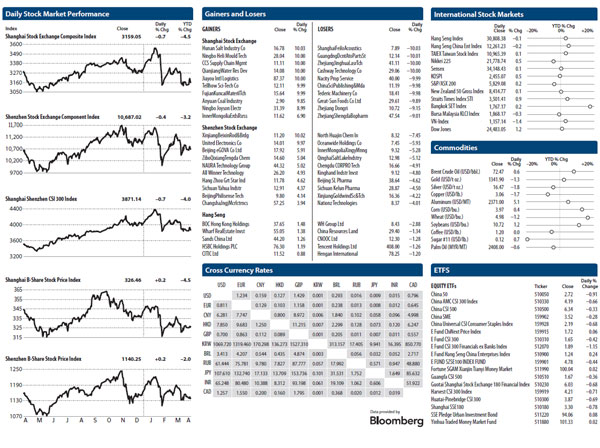Greater Bay Area to boost integration and opening-up


The building of the Guangdong-Hong Kong-Macao Greater Bay Area, or the 4.0 version of the cooperation among the three regions, marks their deeper integration and a new stage in the country's opening-up.
Wang Fuqiang, director of the department of industrial planning of the China Center for International Economic Exchanges, who participated in the planning of the GBA, made the remarks during the 2018 High-Level Policy Forum on Global Governance, held by his center and the United Nations Development Program, in Guangzhou, Guangdong province, on Thursday.
The first two stages of the cooperation among Guangdong province, and the Hong Kong and Macao special administrative regions, involve commodities and traditional services, and the third stage is characterized by cross-region finance following the establishment of pilot free trade zones in Guangdong, Wang said.
The fourth stage, he said, will emphasize innovation in rules, including synergizing standards and governance, to realize sustainable development in the area. The plan for the area will be issued soon.
The development of the GBA involves five goals - a new platform for addressing common issues such as environmental pollution, standard and governance alignment, new discussions on urbanization, and rules relating to the fact that three customs areas and different administrative systems exist in the region.
A fifth goal involves establishing a new system to allow Hong Kong and Macao to be better integrated in the industrial chains in Guangdong and to achieve quality living space.
To these ends, policies should focus on eight aspects - exchanges of people, logistics, new financial platforms, information flow, standard alignment, certification recognition, equal treatment of Hong Kong and Macao residents on livelihood issues, and taxation reform to address large tax rate disparity among the three places, Li said.
Michael Ngai, president of the Hong Kong Finance Association, suggested a GBA investment bank be established to support the GBA and the country's Belt and Road Initiative and to build the region into a competitive international financial center.
Liang Haiming, chairman of China Silk Road iValley Research Institute, suggested a GBA bond be created with a low threshold to allow people in the area to participate in and benefit from its development.
The private sector is necessary in the building of the GBA to make the process more dynamic, create more convenient models and reduce financial risks for the government, said Li Xinxing, principal adviser to the managing director, economics, policy& governance, at the European Bank for Reconstruction and Development.




































